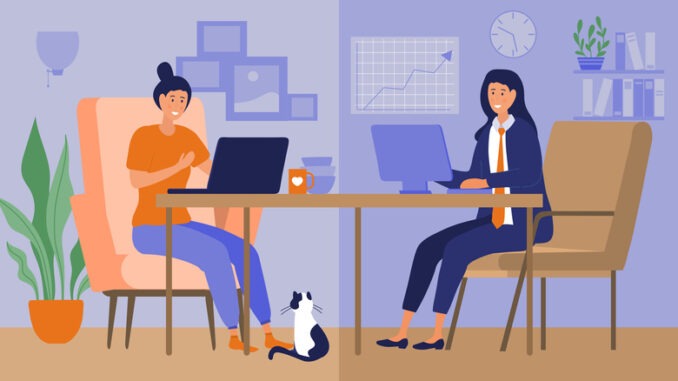
How do you set boundaries, and maintain a healthy work-life balance when, technically, you’re always at work? Fiona Thomas explores
CREDIT: This is an edited version of an article that originally appeared on happiful
Those working from home now account for 13% of the UK workforce. Here’s how to strike a healthy balance when work and life collide.
Don’t isolate yourself
If you’re not a ‘people person’, working from home is probably your dream job, but don’t neglect your biological need for human interaction. Studies show that isolated people are likely to take insufficient exercise, have poor diets, and are less willing to visit a doctor. This can increase your stress levels, blood pressure and inflammation in the body.
Make an effort to meet up with clients in real life; arrange co-working sessions with other self-employed people in your area – or at the least strike up a conversation with your local barista!
Establish a routine
Kirsty Hulse, author of The Future is Freelance, tells us that, although routine is very important, it’s not always sustainable. “For example,” Kirsty says, “some days I will be travelling for a meeting, others I will be at home all day, or be somewhere for an event. It’s not always feasible when you work from home to have a set routine.”
Once you get to know yourself, you’ll discover what your own version of a ‘routine’ looks like. A good place to start is with ‘office hours’ so try making a commitment to getting ready before 9am. This is easy to let slip when no-one is watching.
Set physical boundaries
One of the hardest parts about working from home is the fact that you’re almost guaranteed to let work bleed into your personal life. One way to avoid this is to have a space which is dedicated to work. It doesn’t need to be an entire room (although a separate home office is ideal) but could be a desk hidden away from all the social spaces in your home.
Learn to switch off
Once you have firm boundaries in place it should be much easier to switch off – but, if you’re still struggling, don’t give up. It’s all about finding the tools that work for you. Pick an activity that you can look forward to – to make it your end of the day reward – then you’ll be more likely to stick to it consistently.


Be the first to comment